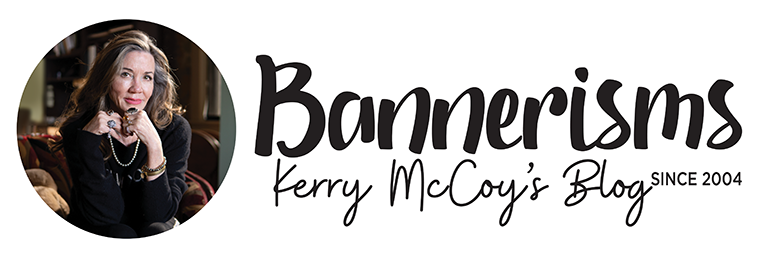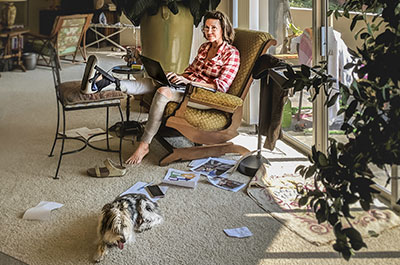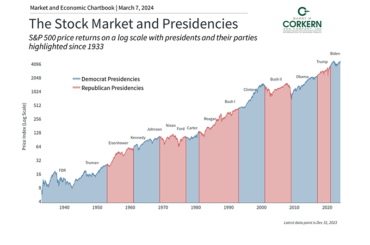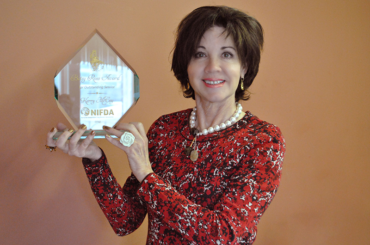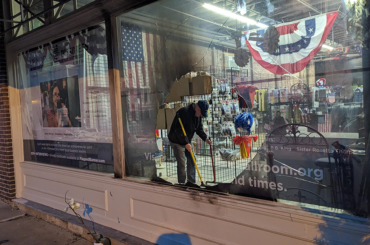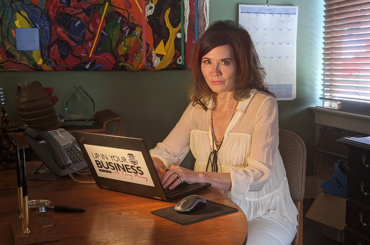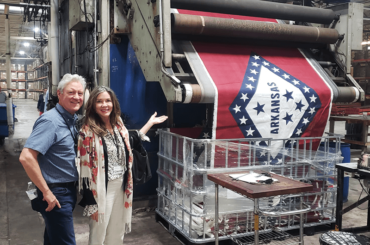Why is every blog I write these days about somebody’s poor health, including mine? My August 29th blog about my son, Jack, getting struck by a car. In my September 12th blog, I was getting over a head cold, and now this: last week, I sprained my ankle. I wish I could say I was snow skiing or dancing on a table top, but no … I just stood up, stumbled and fell. Outside of childbirth, it was the most painful thing I’ve ever done. And makes me think of what a terrible mother I’ve been for not insisting on going up to Ohio to take care of Jack after his accident. Update: In October he’s having surgery on his knee and, this time, he can’t keep me away…even if I’m on crutches, myself.
The day after my ankle incident, I did manage to shoot a commercial for AETN (waist up viewing only), and, on Friday, conduct my radio show before deciding I needed to stay home and off my foot until I saw a doctor. While I awaited my doctor visit, I sat with my foot up and worked on my computer from home and pondered the power of doing nothing.
The English have understood this power for a long time, evident by the Monarchy’s form of leadership. There’s power in stillness. But for me, it’s really hard. I’m impulsive to a fault and action-oriented by nature. It’s taken me a lifetime to learn how to watch, listen and let things play out. God’s will, if I may.
After Googling the “doing nothing” concept, I found lots of blog posts. And lots of Type A vs. Type B personality tests. In Dr. Ilene A. Serlin Ph.D.’s blog, she writes on this subject by referencing a commencement speech made by a colleague, Dr. Elizabeth Wake. In this speech, Dr. Wake urges all graduates to unlearn much of what they learned, and instead practice humility, openness, and careful listening. She states that, contrary to popular belief, it is those qualities that make a good leader and inspire people to follow.
For years I thought to sell, lead or be successful, you had to talk; of course, this will make you the center of attention. But are you really being heard? Will being the loudest or the smartest make people want to work with or buy from you? The days portrayed in the 1980 Wall Street movie, where the outspoken Gordon Gekko says, “Greed is Good” are over. We all know what happened to Mr. Gekko and we’ve all, at some time or another, had a negative experience with a boisterous co-worker posturing for position.
This ‘stillness’ concept first came to my attention via not one, but two of my adult children. Each phoned me on different occasions to lament about their woes. Being a non-stop problem solver, I jumped in with my spoken advice. “Just listen, Mom, please, that’s all I want,” they shouted at me. And I did, and a whole new world began to unfold.
Benefits of Being Still
Being still allows me to listen.
I’ve found that “being still” enabled me to listen and when you listen you learn. By listening my family or co-workers felt heard and when they felt heard, they felt valued. This gained sense of value created ownership in whatever they were doing. When this happened we all won.
Being still stokes my creative flames.
By being still I was able to daydream. I liked to start my visualization at what success looked like to me and then worked backwards on how I would get there. I also thought a lot about life and my greater purpose. Besides a bank account full of cash, creativity is one of the, if not the most important asset in business. It takes creativity to grow, sell, and solve problems.
Sure, it’s nice to have a Type A personality out in front of your company, but it’s the Type B personalities that keep the ship righted and are the ones you need to be listening to.
On my Up In Your Business radio show, I recently interviewed Steve Landers, a highly successful business man in Arkansas. He and I are one year apart in age. As we visited for the first time, I realized we have a lot in common. He told me the thing he loved most about business was problem solving. That “fixing things” was his creative outlet. He said he only recently recognized it. When things at work would be running smoothly, he said he would begin stirring something up — just so he could fix it. He said, “That’s when my employees started telling me stay away.”
As I said, “He and I are a lot alike.” I totally get what he’s saying. And to that I say, “Don’t underestimate the power of doing nothing.”
